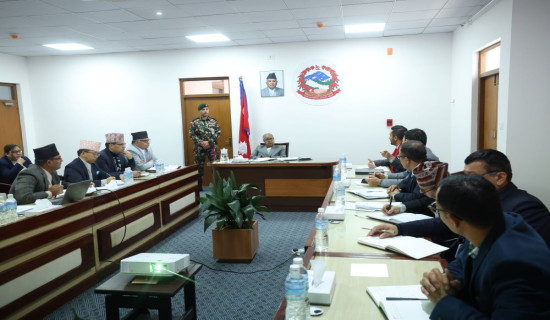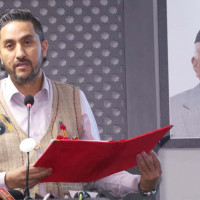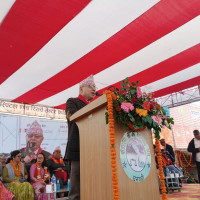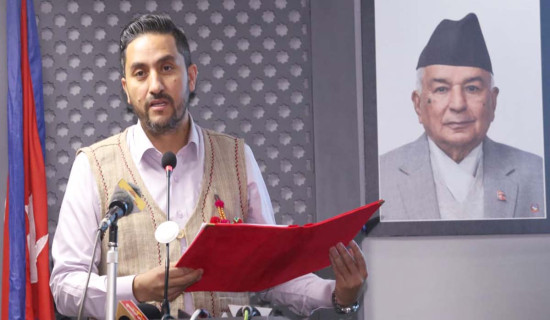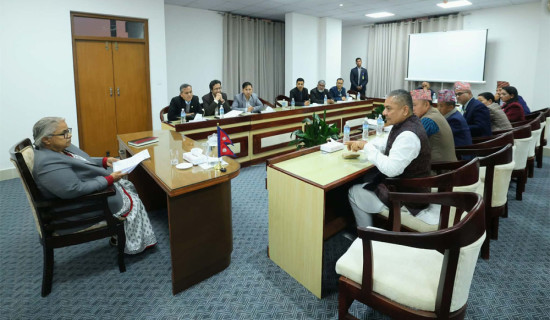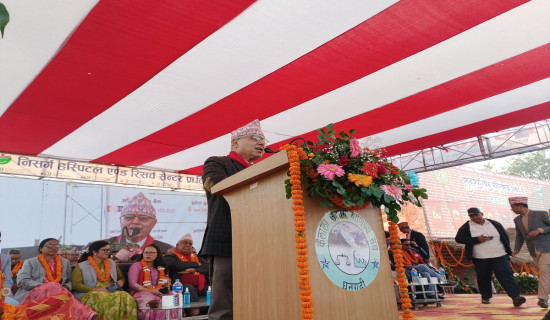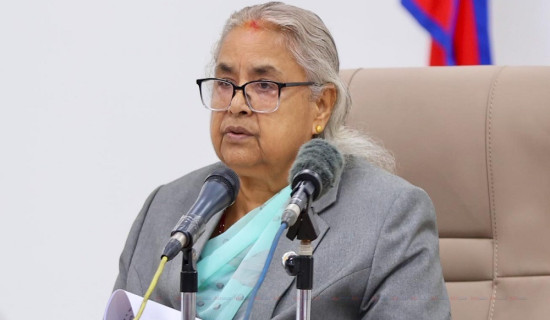- Tuesday, 9 December 2025
Feast Or Waste ?
I am a Newar, born from a lineage that carved the soul of the Kathmandu Valley. The Newar community is rich in history, language, art, architecture, and ritual. We live in rhythm and celebration, where life flows with devotion, colour, and, above all, feast.
But while our feasts are expressions of identity and hospitality, they have also become sites of quiet waste. At nearly every Newar gathering—weddings, festivals, or postpartum rituals—plates overflow, only for much of it to be discarded. Food lovingly prepared ends up in trash bins. And we’ve normalised it. “Guests are gods; food waste is inevitable”—this phrase is often repeated, even by elders. But does honouring guests require dishonouring food?
Worse still is the subtle pressure to taste every dish. “Chhakocha sana neymaa, yau na mayau totiley”—just taste a little, leave the rest. Children are encouraged to sample and discard. This, sadly, is where waste is disguised as politeness and woven into tradition. Over-cooking to impress others, boasting about leftovers, or mocking those who clean their plates—this performative culture celebrates excess rather than gratitude.
In 2018, I attended a Laa Baji Nakha Wonegu—the postpartum feast we traditionally hold for new mothers. The food was generous, the atmosphere warm. But the sheer volume of what was thrown away unsettled me. It was a turning point. From that day, I made a quiet vow: no more waste. I began taking only what I could finish. Whether at home or out, I eat with intention, not out of guilt, but respect. It's a small act, but one rooted in intention.
This contradiction is painful. As Newars and Nepalis, we worship goddess Annapurna, the deity of food. We pray to Karunamaya for harvest and abundance. Yet, the food we revere is treated as disposable. How can we honour food spiritually while discarding it physically? And beyond our community, food insecurity persists. In Gaza, children are dying of hunger these days. Families survive by boiling grass. Against that backdrop, throwing away good food becomes a moral issue. Abundance should inspire compassion, not carelessness.
Some have told me not to criticise our own. But love is not silence. If we take pride in preserving our language, festivals, and architecture, we must also preserve our values. Mindful consumption is not a threat to tradition—it’s a way of honouring it.
Culture isn’t a relic. It can evolve. Customs that create waste or harm deserve reflection. Adjusting how we serve and eat isn't betrayal—it’s reverence. We do not need to stop feasting. We need to do it consciously--- smaller portions, no pressure to overeat, and encouragement to finish what's served.
This isn’t about guilt—it’s about grace. The strength of the Newars lies not just in how grandly we celebrate, but how thoughtfully we adapt. I’ve made my choice to speak, to act, and to change. What about you?



